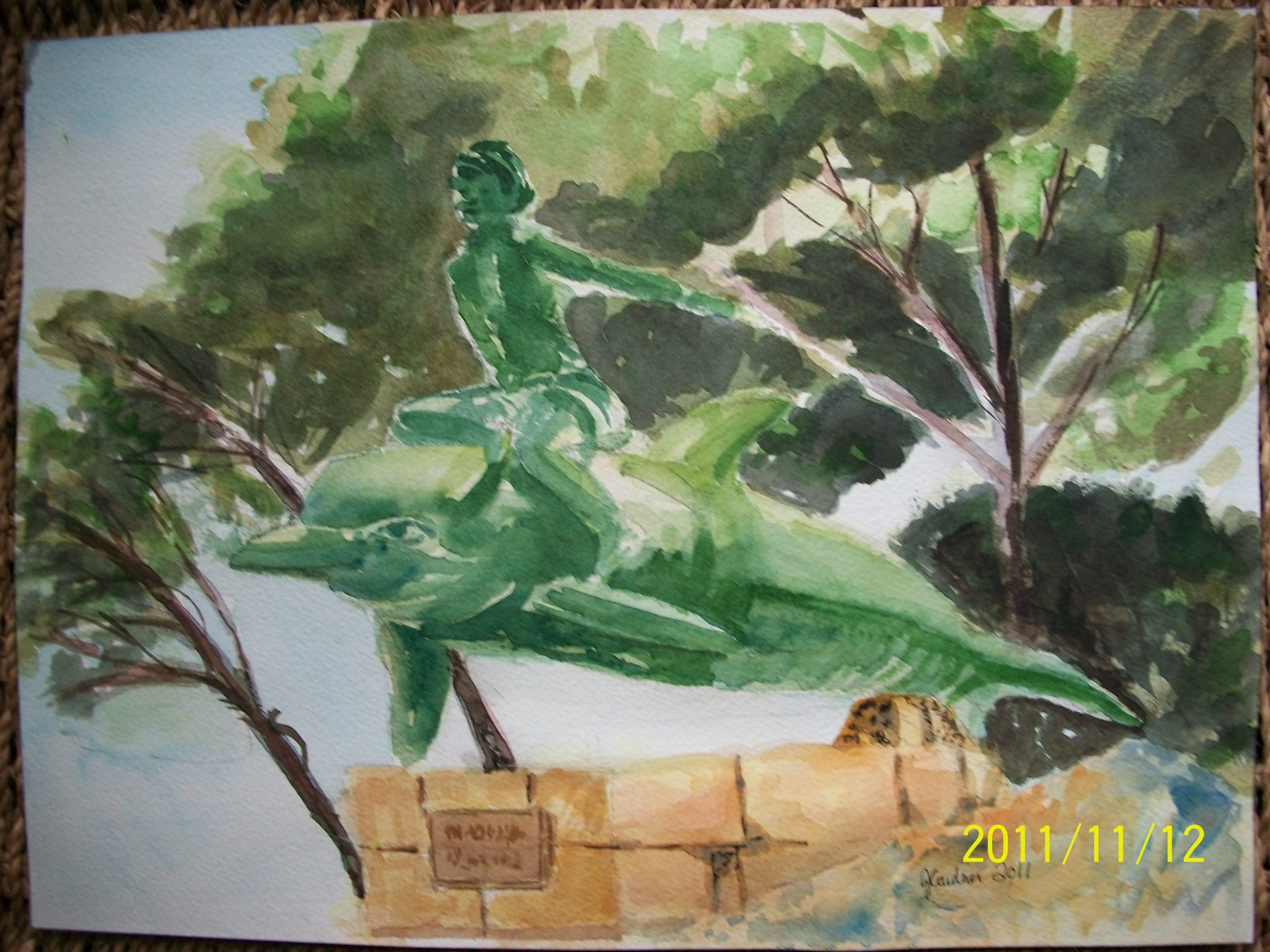Landscape Painting Tips For Watercolor Artists

One of the biggest challenges beginners face with any type of art, is the ability to really connect with the creativity that is inside of them. It’s difficult in the beginning to just let go and paint from your heart and soul. Your mind is being filled with techniques and systems for approaching painting, which in my opinion, tends to drown out your inner creativity. Learning techniques is essential, but there should be a point where you begin to draw from your own creative imagination.
When painting a subject, whether it is a person or a landscape, it is important to first observe your subject. You have to get close and personal to what you are painting. If you want to learn how to paint great landscapes, then you should spend time near the area that inspires you to paint in the first place. Only then can you really understand how to transfer what it is you see to canvas.
Take a ride out to the area you wish to paint. Bring along some pencils and paper. The best way to become really intimate with the scene is to just spend time there doing some sketches. This will really force you to observe what you see and burn the image and the environment into your senses.
Painting with watercolor on location is quite challenging, especially if you are a beginner. The scene is constantly changing. There are certain techniques in watercolor that require the paper to be at certain angles, or the paper needs to be saturated to a certain degree, etc. To get everything right within such a short time span is quite difficult, which is why you should bring a camera in the event you are not able to capture the scene. Once you find a composition that you like, take a bunch of shots at different distances and angles. When you get back to your studio, you will now have a few reference sketches as well as a bunch of great photos to work with. In the beginning, while painting on location, try to choose compositions that are not overly detailed or complex.
One of the best ways to immerse your self in watercolor landscape painting is to find people with the same passion. Search online for any groups or websites for landscape painters in your area. Start chatting and get to know everyone. Many of the artists in these groups love to connect with other artists and plan painting trips. This is a really great way to gain experience.
You do not need to bring your entire studio with you when painting on location. Many beginners will bring far too many supplies, which becomes more of a nuisance than help. Only bring the colors and supplies that you really need to work on a particular scene.
Remember, things change very quickly outdoors. Lighting conditions and weather can change in a matter of minutes. You must be able to paint quickly without being too sloppy. Block in all of your large areas first then go back and start adding your details.
Many landscape artists usually block in the sky area first. The sky is generally paler than the rest of the painting, which enables you to work from light to dark. The sky area also influences the way you paint the rest of the objects in your painting.
When painting objects in the foreground that require great detail, do not try and paint every single leaf or blade of grass that you see. This will usually create too much detail that will draw focus away from the center of interest in your painting. It is also far too time consuming if you plan on painting on location. Besides, a painting is not meant to be an exact replica of what you see, rather your unique impression of the scene. If you want exact details, you are better off taking a photograph.
Don’t be afraid to use your imagination. If you are painting a scene and feel that you should add a few trees here, or a bush there, or a bird on a branch, then by all means go for it.
If you find one particular location appealing, and have already painted there once before, don’t hesitate to go back and paint it again, only this time go out on a cloudy day instead. You will be surprised how different a scene can look when the weather changes.
I hope these watercolor painting tips have helped. If you ever find yourself getting discouraged or frustrated by your progress, don’t give up. Instead, welcome and learn from your mistakes. It will make you a much better painter.